Best Comeback Distro: openSUSE
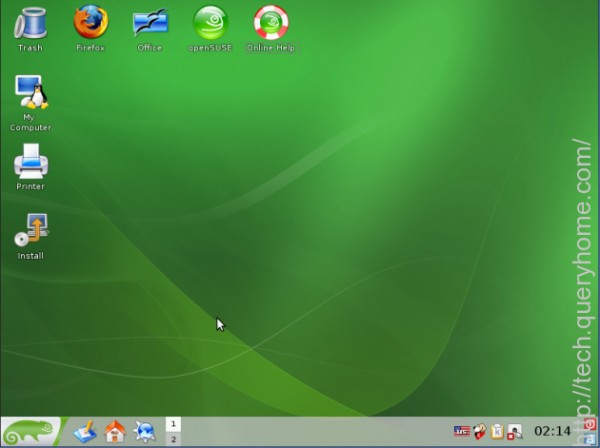
openSUSE Leap is a PC operating system based on GNU and Linux. It's a free/open source and gratis alternative to e.g. Microsoft Windows with many advantages. openSUSE Leap is suitable for laptops, desktops, netbooks, servers and multimedia center PCs at home or in small offices.
Most Customizable Distro: Arch Linux

Arch Linux is one of my favorite GNU/Linux distributions. However, it is not as easy to install as are Ubuntu and openSUSE. Arch Linux is an independently developed, i686- and x86_64-optimised Linux distribution targeted at competent Linux users. The default install provides a solid base that enables users to create a custom installation. In addition, the Arch Build System (ABS) provides a way to easily build new packages, modify the configuration of stock packages, and share these packages with other users via the Arch Linux user repository.
Best-Looking Distro: elementary OS

elementary OS is an Ubuntu-based desktop distribution. Some of its more interesting features include a custom desktop environment called Pantheon and many custom apps including Photos, Music, Videos, Calendar, Terminal, Files, and more. It also comes with some familiar apps like the Midori web browser and Geary mail.
Best Newcomer: Solus
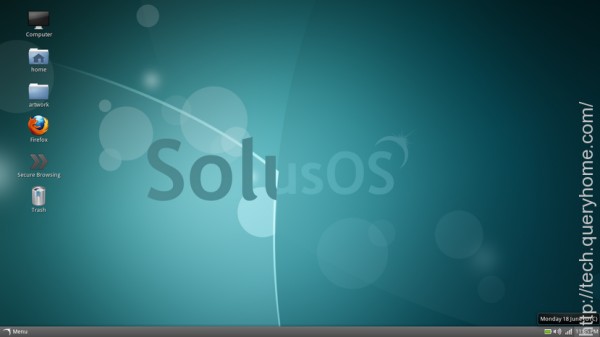
Solus is a Linux distribution built from scratch. It uses a forked version of the PiSi package manager, maintained as "eopkg" within Solus, and a custom desktop environment called "Budgie", developed in-house. The Budgie desktop, which can be set to emulate the look and feel of the GNOME 2 desktop, is tightly integrated with the GNOME stack. The distribution is available for 64-bit computers only.
Best Cloud OS: Chrome OS
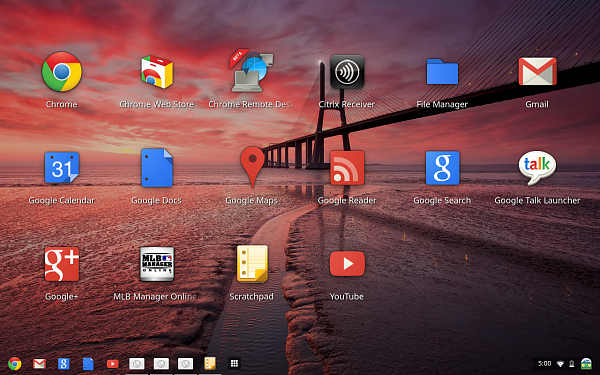
Chrome OS may not be your typical Linux-based distribution because it’s a browser-based operating system for online activities. However, because it’s based on Linux and its source code is available for anyone to compile, it’s an attractive OS. I use Chrome OS on a daily basis. It’s an excellent, maintenance-free, always updated OS for anyone using a computer purely for web-related activities. Chrome OS, along with Android, deserves all the credit for making Linux popular in the PC and mobile space.
Best Laptop OS: Ubuntu MATE
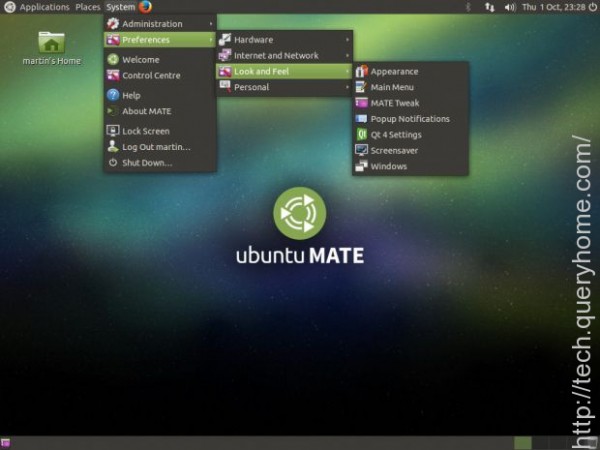
Ubuntu MATE is a desktop Linux distribution which aims to bring the simplicity and elegance of the Ubuntu operating system through a classic, traditional desktop environment - the MATE desktop. MATE is the continuation of the GNOME 2 desktop environment which was used as Ubuntu's default desktop until 10.10 (when it was replaced by Unity). The project began its life as an Ubuntu "remix", but starting with version 15.04, it was formally accepted as an official member of the Ubuntu family of Linux distributions.
Best Distro for Old Hardware: Lubuntu

Lubuntu is a fast, lightweight and energy-saving variant of Ubuntu using the LXDE (Lightweight X11 Desktop Environment) desktop. It is intended to have low-resource system requirements and is designed primarily for netbooks, mobile devices and older PCs.
Best Distro for IoT: Snappy Ubuntu Core
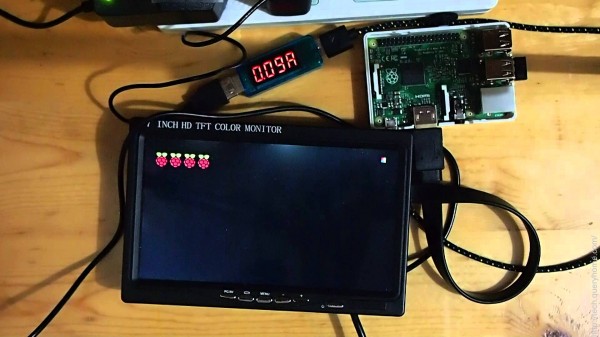
Snappy Ubuntu Core is the best Linux-based operating system out there for Internet of Things (IoT) and other such devices. The operating system holds great potential to turn almost everything around us into smart devices -- such as routers, coffeemakers, drones, etc. What makes it even more interesting is the way the software manages updates and offers containerization for added security.
Best Distro for Desktops: Linux Mint Cinnamon

Linux Mint is an Ubuntu-based distribution whose goal is to provide a more complete out-of-the-box experience by including browser plugins, media codecs, support for DVD playback, Java and other components. It also adds a custom desktop and menus, several unique configuration tools, and a web-based package installation interface. Linux Mint is compatible with Ubuntu software repositories.
Best Distro for Games: Steam OS
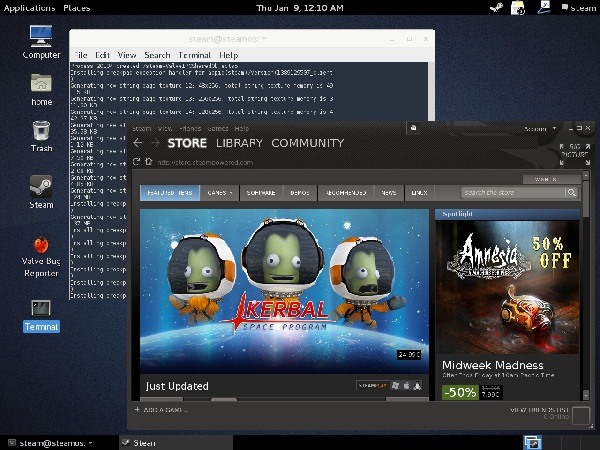
SteamOS is a Debian-based Linux distribution designed to run Valve's Steam and Steam games. It also provides a desktop mode (GNOME) which can run regular Linux applications. In addition to a stable Debian base, SteamOS features various third-party drivers and updated graphics stack, a newer Linux kernel with long-term support, and a custom graphics compositor designed to provide a seamless transition between Steam, its games and the SteamOS system overlay. The base operating system is open-source software, but the Steam client is proprietary.
Best Distro for Privacy: Tails
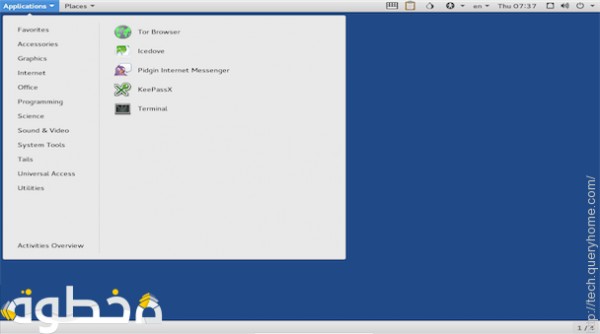
The Amnesic Incognito Live System (Tails) is a Debian-based live CD/USB with the goal of providing complete Internet anonymity for the user. The product ships with several Internet applications, including web browser, IRC client, mail client and instant messenger, all pre-configured with security in mind and with all traffic anonymised. To achieve this, Incognito uses the Tor network to make Internet traffic very hard to trace.
Best Distro for Multimedia Production: Ubuntu Studio

SteamOS is a Debian-based Linux distribution designed to run Valve's Steam and Steam games. It also provides a desktop mode (GNOME) which can run regular Linux applications. In addition to a stable Debian base, SteamOS features various third-party drivers and updated graphics stack, a newer Linux kernel with long-term support, and a custom graphics compositor designed to provide a seamless transition between Steam, its games and the SteamOS system overlay. The base operating system is open-source software, but the Steam client is proprietary.
Best Enterprise Distro: SLE/RHEL

SUSE Linux Enterprise is an interoperable platform for mission-critical computing. SUSE Linux Enterprise Desktop is an enterprise-quality Linux desktop that's ready for routine business use. It provides interoperability with existing systems and many office applications. It also delivers flexibility for desktop and notebook clients, thin-client devices, and high-end technical workstations. SUSE Linux Enterprise Server is designed to handle mission-critical workloads. It is an open, scalable, solution that comes with integrated Xen-based virtualization, application security, and systems management across a range of hardware architectures. SUSE Linux Enterprise Server provides interoperability with Windows and other platforms, and it provides a secure foundation for a broad range of edge, departmental and data center needs.
Best Server OS: Debian/CentOS
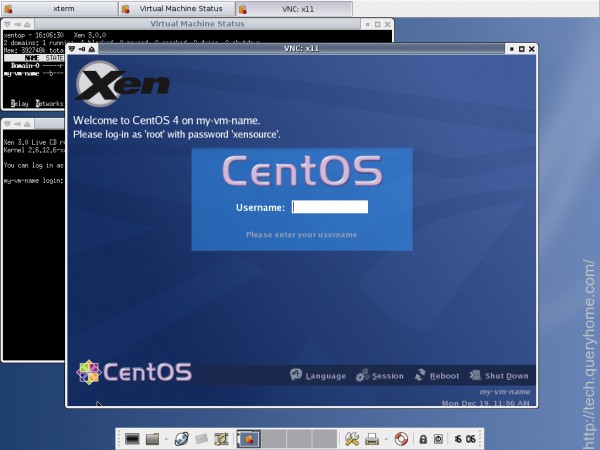
CentOS as a group is a community of open source contributors and users. Typical CentOS users are organisations and individuals that do not need strong commercial support in order to achieve successful operation. CentOS is 100% compatible rebuild of the Red Hat Enterprise Linux, in full compliance with Red Hat's redistribution requirements. CentOS is for people who need an enterprise class operating system stability without the cost of certification and support.
Best Mobile OS: Plasma Mobile

Plasma Mobile aims to become a complete software system for mobile devices. It is designed to give privacy-aware users back the full-control over their information and communication. Plasma Mobile takes a pragmatic approach and is inclusive to 3rd party software, allowing the user to choose which applications and services to use. It provides a seamless experience across multiple devices. Plasma Mobile implements open standards and it is developed in a transparent process that is open for the community to participate in
Best Distro for ARM Devices: Arch Linux ARM
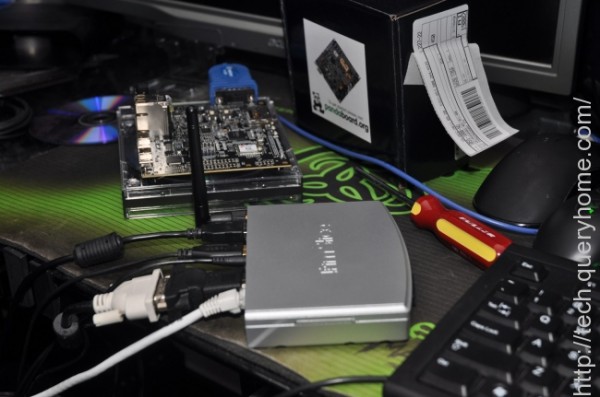
It’s a purely community-based distribution that’s based on Arch Linux. You can run it on Raspberry Pi, Chromebooks, Android devices, Nvidia Shield, and what not. What makes this distribution even more interesting is that, thanks to the Arch User Repository (AUR), you can install many applications than you may not get on other distributions.
